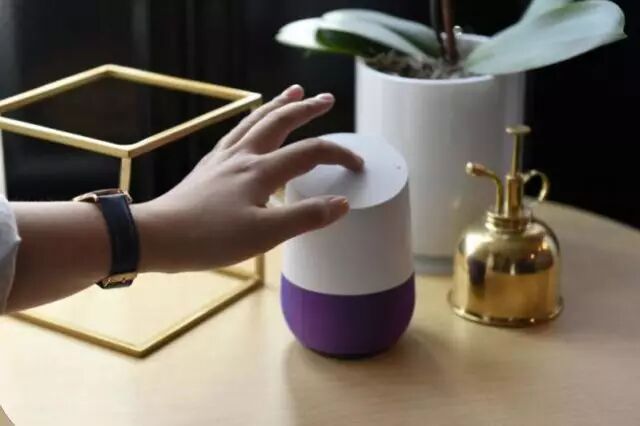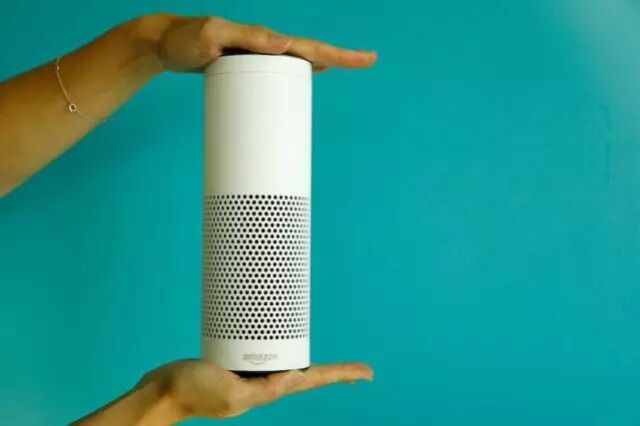Tencent Digital News According to a report from Bloomberg, in the field of internet business, China has its own search engine (Baidu), e-commerce platform (Alibaba), and streaming video service (iQIYI), all of which have achieved great success. However, it is evident that China does not have its own Amazon Echo or Google Home.

In China, the market for devices that provide artificial intelligence services through voice is still in its infancy, with almost no market research companies tracking the sales of such products. Market research firm Counterpoint Research estimates that smart speaker sales in China will reach 2 million units this year, far below the 14 million units in the United States.
The popularity of smart speakers is not only about the sales of the devices themselves but also about which company controls the provision of artificial intelligence services. In the United States, Google, Microsoft, Apple, and Facebook are in fierce competition for control over the center of people’s digital lives. Amazon stated this week that its heavily discounted Echo was the best-selling product during Prime Day promotions.
Gartner analyst Tracy Tsai stated, “The technology to understand and respond to natural language in Chinese conversational contexts is not mature enough,” noting that the low accuracy of voice recognition in devices produced by some Chinese manufacturers is a key factor hindering the popularity of smart speakers.
Yu Kai, founder of Horizon Robotics and Baidu’s Deep Learning Institute, pointed out that other factors also affect the popularity of smart speakers in China, the world’s largest retail market. Many people, especially young office workers, typically spend less time at home. The utility of smart speakers is usually at home.
Yu said, “The booming takeaway industry indicates that people do not have much time to stay at home. Young people spend most of their time working or commuting. There are still some doubts about whether smart speakers can become popular in China.”
Beijing resident Tianran He stated that he has not seen a compelling reason to purchase a smart speaker and has never heard friends or family discuss buying one. He said, “Having a speaker in the room that can ‘hear’ any sound makes me feel strange.”
When going out, Chinese consumers always spend more time consuming content on mobile devices rather than staying in the living room or bedroom. Data from early 2016 showed that about 70% of iQIYI users (the most popular streaming video service in China by viewing time) watch shows on smartphones and tablets. Scott Mirer, vice president of Netflix’s device partner ecosystem, stated last year that, in contrast, most Netflix users watch shows on their home televisions.

Bloomberg reported that although smart speakers are not yet popular products in China, the country’s internet giants still plan to launch smart speakers. JD.com is the largest company to launch smart speakers, expecting to ship 1 million units of smart speakers using its technology by the end of this year. Counterpoint predicts that by 2022, smart speaker sales in China will reach 22 million units.
Alibaba and Tencent have already announced plans to produce smart speakers. Baidu showcased a smart speaker at this month’s artificial intelligence conference, which was asked the most common question in Beijing: “How is the air quality today?” Baidu’s Mandarin voice assistant DuerOS is integrated into multiple products.
Cosun Technology Company (hereinafter referred to as “Cosun”) develops audio capture and processing technology. Cosun President Saleel Awsare stated that the company is collaborating with over 60 Chinese companies interested in developing smart voice devices, compared to about 20 American smart speaker partners, including Amazon.
Awsare said, “In China, there are many more startups developing smart speakers, and they seem to find it easier to obtain investment. The current situation in the smart speaker field is quite similar to when smartphones first emerged.”
Bloomberg noted that one possibility is that in China, artificial intelligence voice services are provided not through speakers but through home appliances. Market research firm IHS Markit reported that last year, Chinese consumers purchased 65% of the world’s large smart home appliances. IHS Markit expects this number to reach 95.1 million units by 2020.
The latest refrigerators from Midea and JD.com can remind users to eat more vegetables, as they are equipped with image recognition cameras and software that can identify food and vegetables in the refrigerator. According to JD.com’s Chief Technology Officer Zhang Chen, while it can be said that smart refrigerators are not a new thing to some extent, they may be a viable way for artificial intelligence to enter homes.
Zhang said, “The key to refrigerators is not the technology itself, but how the technology integrates into people’s lives. Artificial intelligence needs practical applications.”
Source: Bloomberg

【Disclaimer】We focus on sharing, and all text and images are reproduced from the internet. We maintain neutrality regarding the content and views expressed in the article and do not provide any explicit or implied guarantees regarding their accuracy, reliability, or completeness. Due to editorial needs, there may not be a necessary connection between the text and images, and they are for reader reference only. If there are any infringements or inaccuracies, please contact us promptly, and we will delete them.